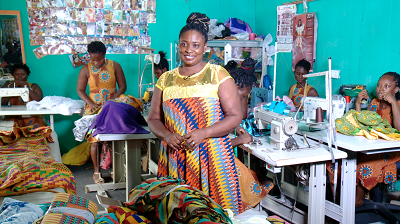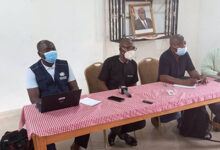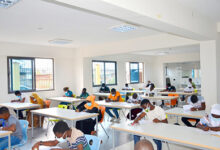
p56 microfinance institutions have benefited from a 1.5 million-euro capacity improvement project to facilitate the sustainability of the companies in the financial sector.
Initiated byAgence Française de Développement (AFD), a French development agency, in 2015, the Microfinance Companies Capacity Improvement Project (MICCIP) spanned 40 months.
A statement issued by Dorcas A. Dare, Corporate Communications Coordinator ofAFD Ghana, said the aim of the project was to support the consolidation of the sector and the rise of solid and sustainable microfinance companies.
The statement said the project helped to facilitate and encourage access to credit and savings for populations excluded from the traditional banking system.
“It also made it possible to share universal standards for social performance management, including the principles of client protection,” it said.
The statement said the beneficiaries, all members of Ghana Association of Microfinance Companies (GAMC), were trained and supported for the implementation of key actions such as the redefinition of the business model and the development of new products.
“This allowed them to, among other things, reach individuals and microenterprises which until now were almost left out and to implement responsible customer care,” the statement said.
The impact on the companies which benefitted from the project was significant, the AFD said, adding that, between 2015 and 2018, the average number of clients increased by 47 per cent, the average loan portfolio by 146 per cent and that of savings by 160 per cent.
“We now have over 6000 customers. And this year, the Chartered Institute of Credit Management, the world’s largest professional organisation in the sector, has named us as the most promising microfinance institution in Ghana. MICCIP has really helped us,” Madam Bertha Agyeman, CEO of Hopeline Microfinance, was quoted as saying.
Besides the direct beneficiaries, the AFD said there were final beneficiaries; “these are farmers, including smallholder farmers, small traders, street vendors, craftsmen, micro and small businesses who lack the collateral needed to access financing from banks.”
The AFD said, in addition to access to credit, they were able to save with microfinance houses to improve their financial security; some of them even provide their clients with financial education enabling them to improve their financing decisions.
According to the statement, Madam Hilda Owusu, a seamstress and now a business owner, testified: “I was going through a difficult period in my business when I turned to a microfinance company [benefiting] from the MICCIP project. Thanks to their advice, today, I have three clothing stores.”
By Times Reporter




